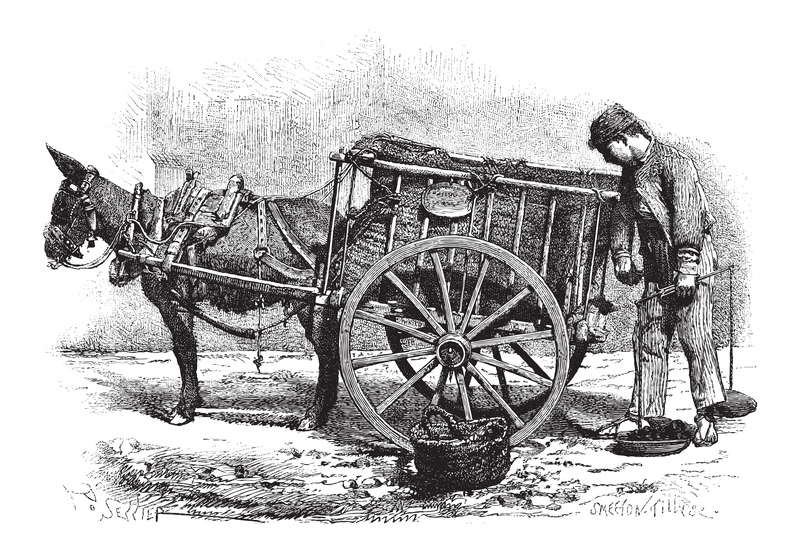Upgrade Your Household Recycling Methods
Posted on 30/01/2025
Recycling is an essential practice to protect our environment, save wildlife, and conserve natural resources. However, many households don't maximize their recycling potential. Whether you are a recycling novice or seasoned pro, there are always new ways to upgrade your household recycling methods. This article will guide you through practical steps, innovative ideas, and best practices to help you become a recycling superstar.
Why Household Recycling is Important
Recycling reduces the need for raw materials, decreases energy consumption, and minimizes landfill waste. By recycling more effectively, you contribute to lowering pollution levels and combating climate change. Moreover, effective recycling practices can have economic benefits by creating jobs and stimulating technological advancements.

Assess Your Current Recycling Habits
Before you can make improvements, you need to understand your current recycling habits. Take notes of the items you recycle, those you throw away, and anything that could be improved. Evaluate the types of bins you use, the frequency of collections, and your overall commitment to recycling.
Upgrade Your Recycling Bins
A crucial part of effective recycling is having the right containers. Upgrade to bins that suit your household's needs. Consider color-coded bins to make sorting easier for everyone. Invest in bins designed for specific materials like plastics, paper, glass, and metals.
Know What Can and Cannot Be Recycled
One of the biggest mistakes households make is unknowingly placing non-recyclable items into recycling bins. Research your local recycling guidelines to understand what can and cannot be recycled in your area. Often, food-contaminated containers, plastic bags, and certain types of plastics are not recyclable curbside.
Compost Organic Waste
Organic waste such as fruit and vegetable scraps, coffee grounds, and eggshells can be composted instead of thrown away. Start a compost bin in your backyard or find a local composting facility. Composting not only reduces landfill waste but also enriches your garden soil.
Reduce and Reuse Before Recycling
The first steps of the waste hierarchy are "Reduce" and "Reuse." Try to minimize waste by buying in bulk, avoiding single-use items, and opting for reusable products. Before you recycle, consider if an item can be repurposed or donated.
Stay Informed and Educate Others
The world of recycling is constantly evolving, with new regulations, technologies, and best practices emerging all the time. Stay informed by subscribing to newsletters, following environmental organizations, and educating your family and friends about the importance of proper recycling.
Pros and Cons of Upgraded Recycling Methods
Pros:
1. Environmental Benefits: Significant reduction in pollution and greenhouse gases.
2. Economic Savings: Lower waste disposal costs and potential revenue from recycled materials.
3. Job Creation: Recycling industries create numerous employment opportunities.
4. Resource Conservation: Less demand for raw materials and energy.
Cons:
1. Initial Costs: Setting up an efficient recycling system may require an investment.
2. Time-Consuming: Sorting and managing recyclables can be labor-intensive.
3. Contamination Issues: Incorrectly recycling non-recyclables can contaminate entire batches.
4. Limited Acceptance: Not all materials are accepted in every local recycling program.
Tips for Effective Recycling
1. Clean Recyclables: Ensure all items are clean and dry before placing them in bins.
2. Break Down Boxes: Flatten cardboard boxes to save space and improve collection efficiency.
3. Remove Labels: Remove labels from bottles and cans when possible to facilitate processing.
4. Stay Consistent: Make recycling a daily habit, not an occasional activity.
5. Educate Your Household: Teach family members the importance and methods of recycling.

Key Takeaways
1. Assess and Improve: Regularly evaluate and upgrade your recycling practices.
2. Separate Correctly: Know what can and cannot be recycled.
3. Reduce, Reuse, and Compost: Prioritize reducing and reusing over recycling.
4. Educate Yourself and Others: Stay updated on recycling practices and share knowledge.
Conclusion
Upgrading your household recycling methods requires effort, but the environmental, economic, and social benefits make it worthwhile. By implementing these practices, you'll not only reduce your carbon footprint but also contribute to a healthier planet. Make recycling a regular part of your daily routine, stay informed, and encourage others to do the same. Transform your household into a model of sustainable living, making a positive impact on the world.
By integrating these strategies, you can significantly enhance your household's recycling efforts, making a lasting difference for both your community and the planet. Let's all do our part, starting today.



